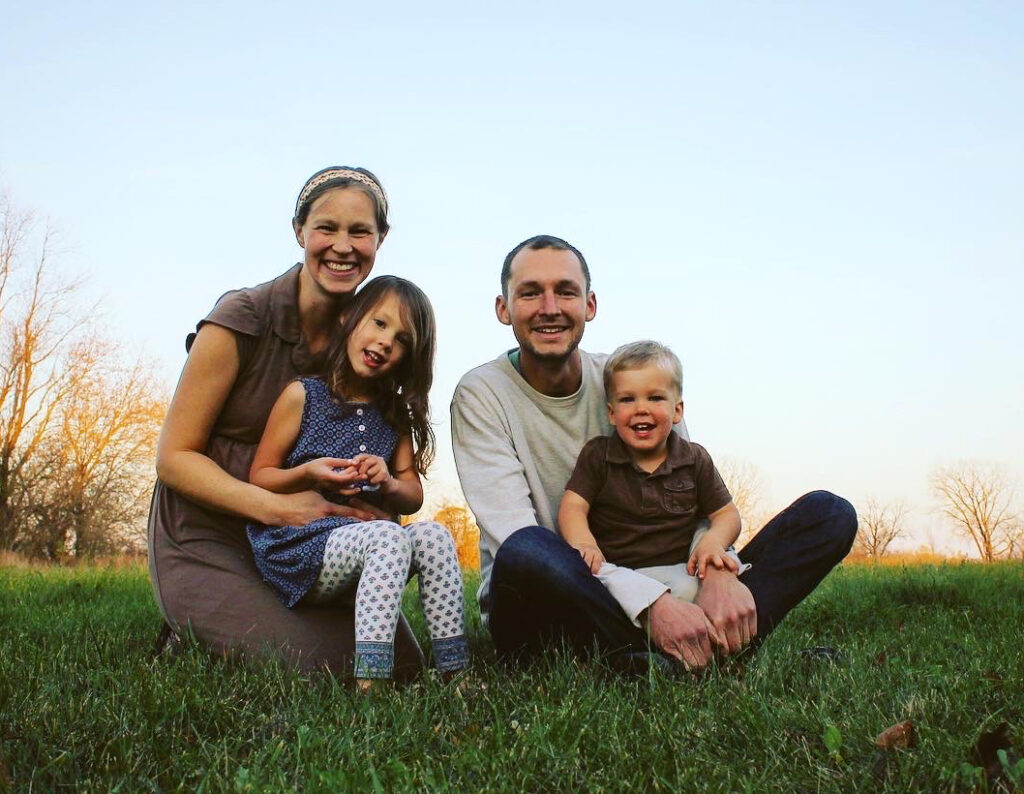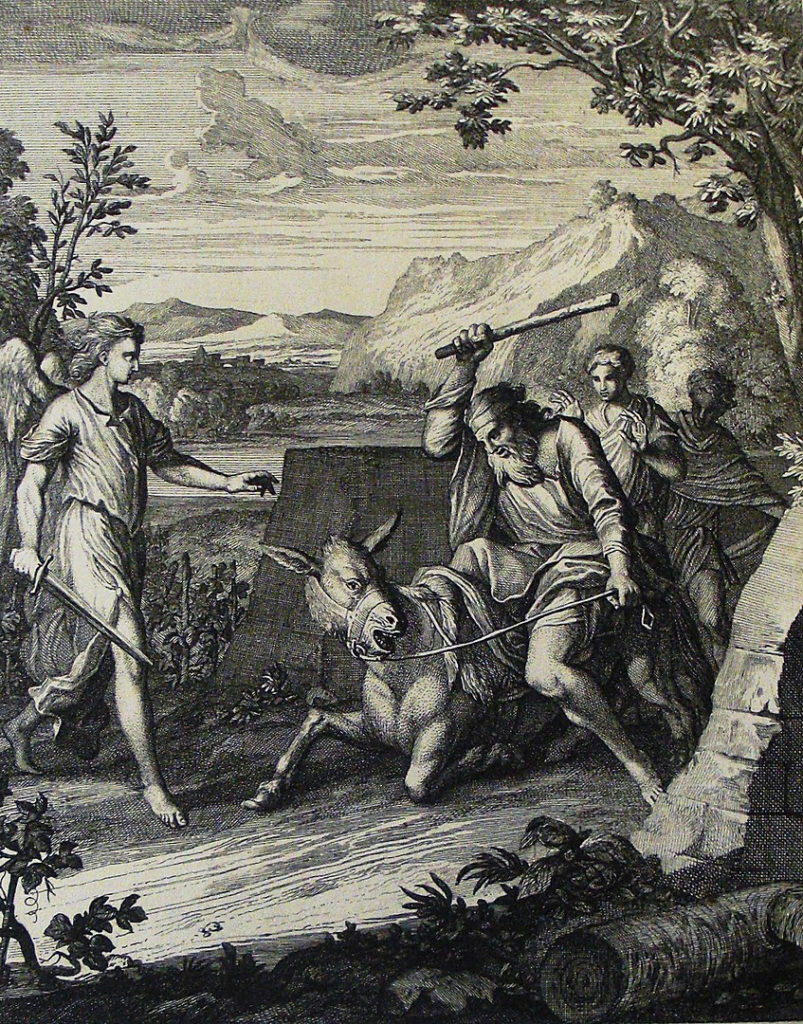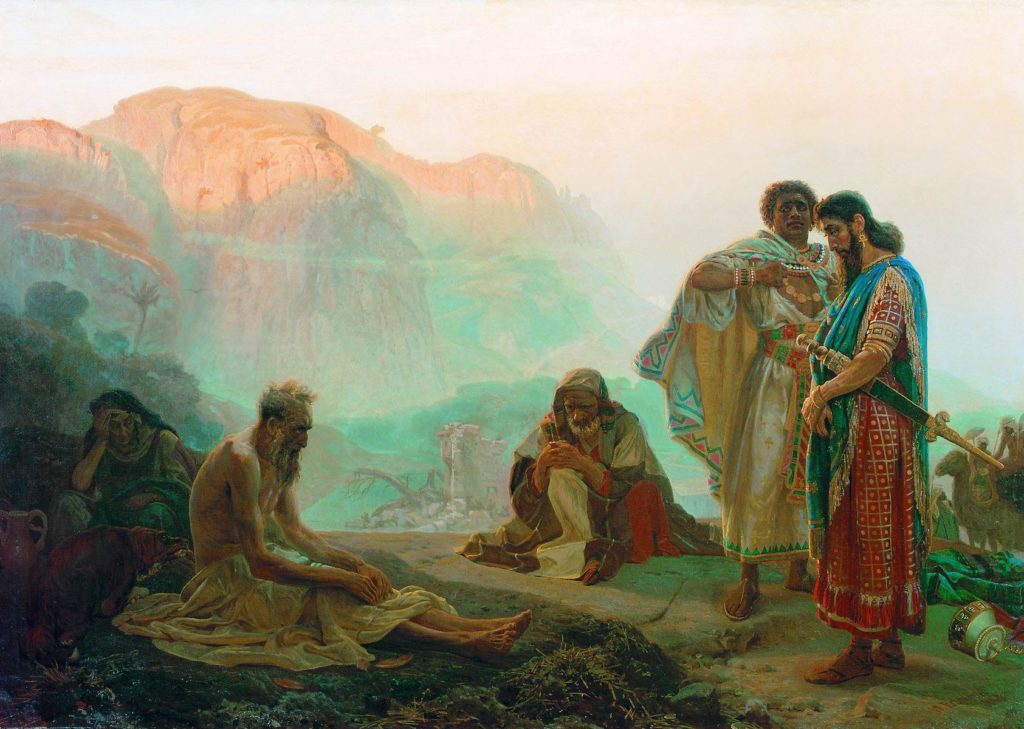There are several references to the “fat of the land” or “fatness of the land” in the Old Testament.
Genesis 27:28 Therefore God give thee of the dew of heaven, and the fatness of the earth, and plenty of corn and wine: (KJV)
Genesis 27:39: And Isaac his father answered and said unto him, Behold, thy dwelling shall be the fatness of the earth, and of the dew of heaven from above. (KJV)
Genesis 45:18: And take your father and your households, and come unto me: and I will give you the good of the land of Egypt, and ye shall eat the fat of the land. (KJV)
I don’t know about you, but I had long assumed the term was only metaphorical. In fact, many translations now have changed the phrase to “earth’s richness” or “richness of the earth.”
And then I listened to an interview with John Kempf by the hosts of the Back to the Roots podcast.
John, a great podcaster himself, is one of the leading voice of regenerative agriculture in the United States. You can find the interview here, and I’d encourage you to listen to it. John is brilliant, humble, and gifted in all that he discusses.
Around the 13:00 minute mark you can hear John bring up the Biblical phrase “fat of the land.” This is not unusual. John frequently brings up Biblical references and concepts in his podcasts and interviews. You can tell he has been steeped in the Bible.
John proceeds to explain the literal truth of that phrase.
Here’s one key quote: “Stable organic matter (in the soil), stable humic substances, are about 40 percent lipids. (In other words) 40 percent fats. So I believe that when we talk about the fat of the land, we’re really having a conversation about carbon storage, organic matter building in soil as a result of microbial activity and accumulating fats in organic matter.”
In other words, land can literally have fat. And healthy land does have fats.
I was driving as I listened to the interview and feel fortunate to not have had an accident.
First, how fascinating is it that something we take as a metaphor in the Bible has actual agronomic truth?
Along these lines, check out this link to a description of a scientiifc finding from University of Colorado Boulder researchers. They’ve found a fatty acid in a soil-based bacterium that appears to have anti-inflammatory properties.
Second, let’s unpack the larger meaning behind what John says.
A farmer only has stable organic matter in the soil if the farming being done mimics the workings of God’s earth in nature. Nature, for example, almost always covers its ground with diverse plants that, through their living roots, feed carbon that feeds life in the soil. Nature also integrates animals into any natural system, and they also add nutrients to the living soil system. Nature does not disturb these processes through plowing and tillage. Nor fungicides and herbicides and insecticides.
Farmers can imitate those same principles and approaches. And some are, as you can see in the video below. Applying those principles and approaches to the specific context of a specific place is called regenerative agriculture.
And much of the focus of regenerative ariculture is building the biological life of the soil. That rich life, including diverse bacteria and fungi, provides the plants with easy-to-absorb nutrients and phytonutrients to the plant. In other words, plants feed the soil, and the soil feeds the plants.
That rich soil life also builds stable humic substances where we find the real fat of the land that John mentioned.
We shouldn’t be surprised then that when we eat plants and animals from land that has that abundant soil life, we get healthier food which gives us healthier bodies.
A number of years back, Jim, a Christian friend of mine, and his wife Joelle had gotten married and were hoping to have children. That wasn’t happening. They turned to doctors for ideas and help. Nothing they heard made sense. They were frustrated and not sure what to do.
Then Joelle’s sister asked about their diet. They described a standard diet of processed foods from conventionally-farmed plants and animals. Joelle’s sister urged them to look into more natural and organic options. They were desperate. So they went all in. They competely changed to a diet of natural and organic foods, largely home cooked.
And before long they became pregnant. In fact, they just had their third child earlier this year. This experience completely changed the direction of their lives (they are now homesteading, among other things). It’s even given them new insights into their Christian faith and what it means for us to be stewards of God’s earth.

Jim and Joelle shifted to a natural diet from a processed, conventional diet when they had trouble having children. They now have three children, including Eloise and Abram (Gus was just born recently) – abundant life from abundantly alive farms and foods.
We now know that we have stripped away that life-giving richness of the land with an industrial, extractive approach to farming. But people like John Kempf, many of whom are Christian, are showing how it is possible to restore and rejuvenate God’s good earth.
By having loving hearts, creative and dynamic minds, and attentiveness to the beautiful systems of God’s earth, we can honor God and provide life-giving food to our neighbors.
Maybe we’re supposed to take Jesus’ words in John 10:10 – “..I came that they have life and have it abundantly” – literally as well?
By making God’s life abundant on God’s earth and in God’s soil, we give others and ourselves abundant life.
Here and now.
P.S. Here’s a blog post by a regenerative farmer – Will Harris – about the fat of the land concept and artificial meats.
P.P.S. Here’s a blog post by Rabbi Daniel Lapin about the two different Hebrew words interpreted as “fat of the land” by English translators. While the rabbi explains both words can be translated as “fat” in a general way, one has the meaning of milk included in it, and the other can mean fat or oil. In his blog post, you can read Rabbi Lapin’s idea of what he believes the deeper difference is between the words and what larger message that has for us. It occurs to me, however, that he may be missing a more obvious difference betweent the two words – one word refers to animal-generated fat and the other refers to fat coming from plants. Both animals and plant life are needed for living soil. But I realize it’s more than a little presumptuous of me to question a rabbi about a Hebrew question! So I’ve sent a message to him asking for his feedback on my perspective.







